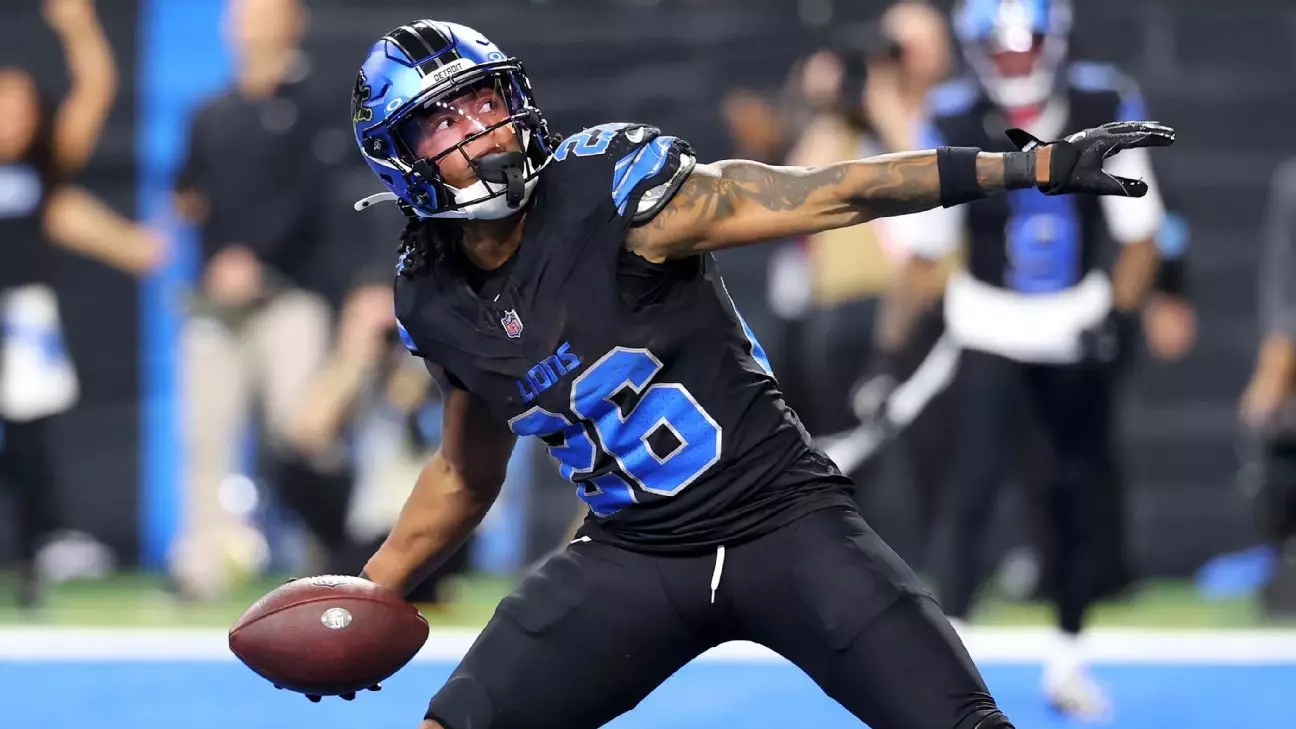In a pivotal clash of NFC North titans, the Detroit Lions showcased their mettle by slamming the Minnesota Vikings with an impressive score of 31-9. With this victory, the Lions claimed their second consecutive division title and secured crucial home-field advantage throughout the playoffs, a significant strategic edge as they aspire for a long-awaited Super Bowl appearance. This match not only emphasized the Lions’ offensive prowess but also highlighted some critical challenges faced by the Vikings, setting a compelling narrative for the upcoming playoffs.
All eyes were on Jahmyr Gibbs, who delivered a standout performance, scoring three of his four touchdowns during a spectacular second half. The young running back rushed for 139 yards on 23 carries and made a notable contribution with five receptions for an additional 31 yards. Gibbs’s versatility was pivotal in alleviating pressure on quarterback Jared Goff, whose performance was a mixed bag. He completed 27 of 33 passes for 231 yards, featuring a touchdown but marred by two costly interceptions. Gibbs’s ability to explode in critical moments exemplifies the Lions’ capability to perform under pressure, making him a key player to watch in the forthcoming playoff games.
While the Lions celebrated on the offensive end, the Vikings struggled to find their rhythm. Quarterback Sam Darnold’s performance was notably subpar, with a dismal completion rate of 44%, throwing for just 18 completions on 41 attempts. The Minnesota offense failed to capitalize on several key opportunities, particularly in the red zone, where they went a frustrating 0 for 3 in the first half. This inability to convert crucial plays into points ultimately cost them the game. Time and again, the Vikings faced critical fourth-down situations that ended in missed opportunities, showcasing the cracks in their previously high-flying offense.
This matchup was significant not just for its immediate implications but also for its place in NFL history. The fact that two teams with a combined record of 28 wins squared off in the regular season game underscores the competitiveness within the league this year. Historically, the NFL has seen instances where the final regular season game can sway postseason momentum; the Lions are keenly aware of this precedent as they strive for their first Super Bowl berth since 1957. The ghosts of past failures loom large, but so does the hope for a rewritten narrative.
Future Implications and Playoff Outlook
With this victory, the Lions can afford to rest their weary roster during the first week of playoffs, a luxury that will benefit them greatly against teams vying for postseason glory. Meanwhile, the Vikings must regroup quickly, as they prepare for a challenging encounter with the Los Angeles Rams. As the playoff picture begins to take shape, both teams may find themselves on a collision course once more. The Lions are riding a wave of momentum, while the Vikings need to regain their confidence to avoid another embarrassing early exit from the postseason.
A Legacy in the Making
For the Lions, this win is not just about the title; it symbolizes a turning point in a franchise long plagued by disappointment. As fans revel in the excitement of potential glory, players like Gibbs and Goff embody the modern ethos of resilience and determination. The narrative has shifted from perennial underdog to legitimate contender, and the nation will soon discover if the Lions can finally break their championship drought. If their performance against Minnesota serves as any indication, the Lions are poised, focused, and ready to seize the moment in their pursuit of NFL greatness.
The Detroit Lions have demonstrated with their dominant performance against the Vikings that they are not just merely contenders, but a force to be reckoned with as the playoffs approach. Their ability to capitalize on the strengths of players like Gibbs while navigating the challenges of their opponents will be critical as they advance in the postseason. The stage is set, and the journey continues.


Leave a Reply